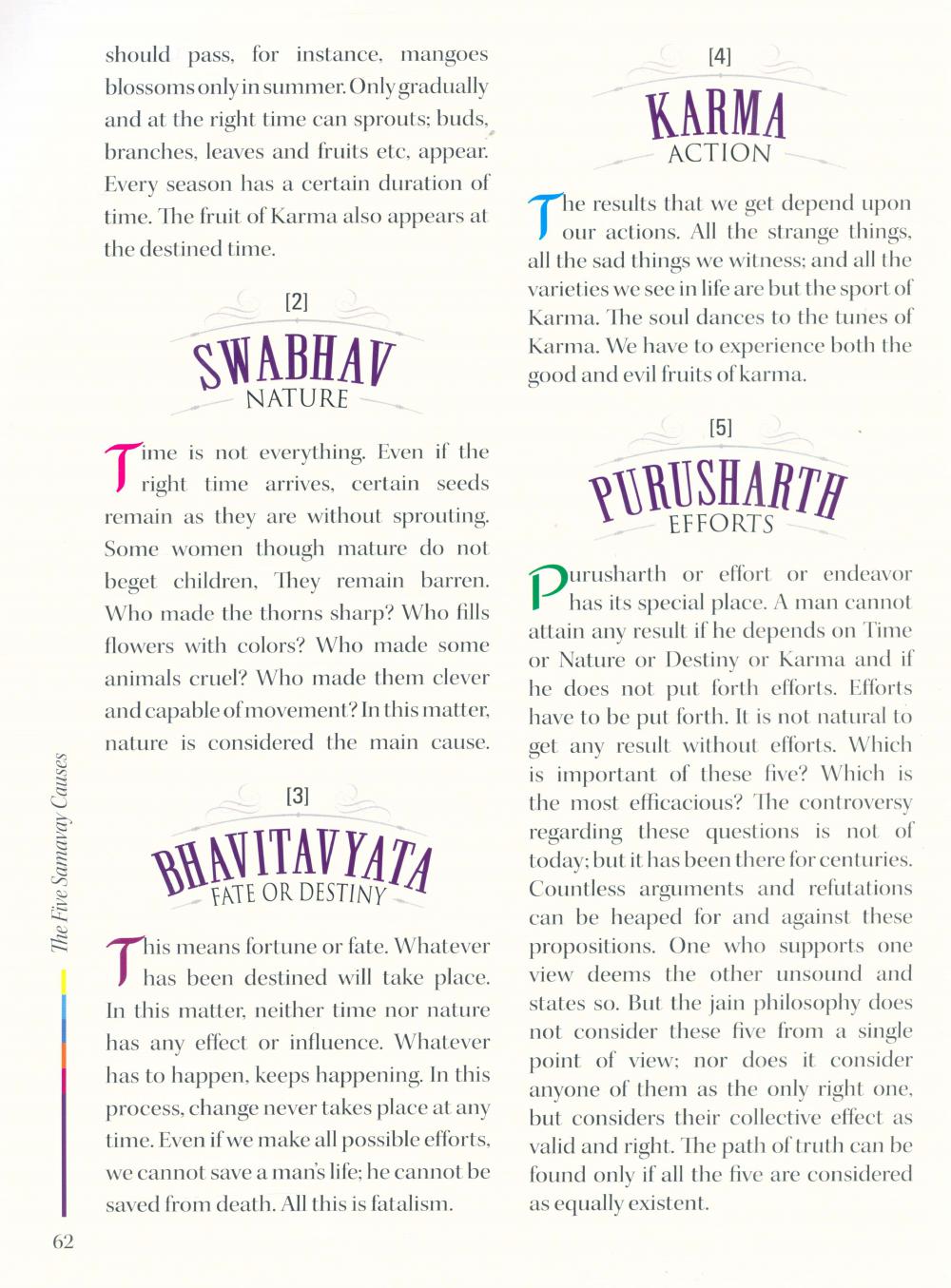________________
[4]
KARMA
should pass, for instance, mangoes blossoms only in summer. Only gradually and at the right time can sprouts; buds, branches, leaves and fruits etc, appear. Every season has a certain duration of time. The fruit of Karma also appears at the destined time.
ACTION
[2]
he results that we get depend upon
our actions. All the strange things, all the sad things we witness; and all the varieties we see in life are but the sport of Karma. The soul dances to the tunes of Karma. We have to experience both the good and evil fruits of karma.
SWABHAV
NATURE
[5]
PURUSHARTH
EFFORTS
Time is not everything. Even if the
right time arrives, certain seeds remain as they are without sprouting. Some women though mature do not beget children, They remain barren. Who made the thorns sharp? Who fills flowers with colors? Who made some animals cruel? Who made them clever and capable of movement? In this matter, nature is considered the main cause.
[3]
The Five Samavay Causes
BHAVITAVYATA
FATE OR DESTINY
n urusharth or effort or endeavor
has its special place. A man cannot attain any result if he depends on Time or Nature or Destiny or Karma and if he does not put forth efforts. Efforts have to be put forth. It is not natural to get any result without efforts. Which is important of these five? Which is the most efficacious? The controversy regarding these questions is not of today, but it has been there for centuries. Countless arguments and refutations can be heaped for and against these propositions. One who supports one view deems the other unsound and states so. But the jain philosophy does not consider these five from a single point of view; nor does it consider anyone of them as the only right one, but considers their collective effect as valid and right. The path of truth can be found only if all the five are considered as equally existent.
his means fortune or fate. Whatever
has been destined will take place. In this matter, neither time nor nature has any effect or influence. Whatever has to happen, keeps happening. In this process, change never takes place at any time. Even if we make all possible efforts, we cannot save a man's life; he cannot be saved from death. All this is fatalism.
62




